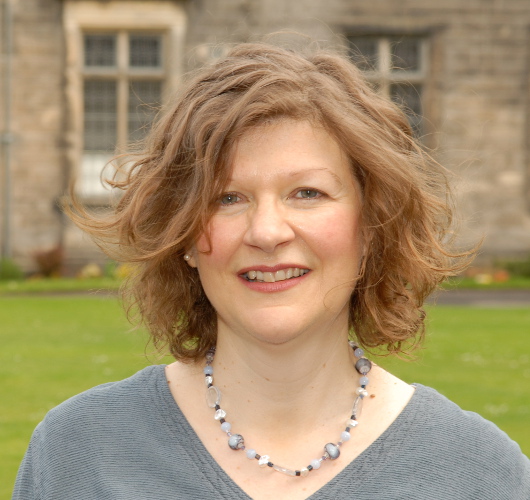Start writing
Professor Susan Sellers’ tips for Novel Writing Month

Maya Angelou once said: “There is no greater agony than bearing an untold story inside you.”
If you’ve always suspected there’s a novel in you, an online project aims to help you get it on to paper in just 30 days. November is National Novel Writing Month, an annual challenge where writers put together 50,000-word novels between 1 November 2015 and midnight on 30 November 2015.
Chris Baty founded NaNoWriMo as a non-profit in 1999 in the San Francisco Bay Area with only 21 participants. Only six of those 21 participants completed the challenge. By 2001, 5,000 people signed up for the challenge. In 2014, 175,002 people participated, with 40,325 meeting the goal.
To take part all you need to do is commit to writing 50,000 words of your novel in the 30 days of November. To participate you need to set up a profile on the NaNoWriMo website, which gives incentives in the form of badges and a supportive social media community to cheer you on as you strive to meet your daily word targets.
The project is intended to act as a literary shot in the arm rather than a shortcut to the Man Booker. “It’s such a powerful antidote to that horrible foe of creativity: self-doubt,” says Grant Faulkner, NaNoWriMo’s executive director. “As many NaNoWriMo writers have discovered, the best way to learn to write a novel is by simply plunging in to write a novel.”
Professor Susan Sellers from the School of English is an author, editor, translator and novelist. Here, to celebrate National Novel Writing Month, she offers her top tips for successful writing.
Never wait for inspiration.
This may come – but it will have more chance of doing so if you are already among words.
Work out when, where and how you do your best work.
The venue might be a library, a café, on a train, in bed. You might work best first thing in the morning while your mind is still wide open, or last thing at night once the day’s other tasks are done. Some writers like silence, others can only function against background noise. Experiment to see if deadlines are productive spurs or thought-crippling terrors. Do not rule out the possibility that each stage of writing (research, planning, drafting, editing) might require a different context.
Do your groundwork.
Even though you will not use all your research, the fact that you know the full picture and can select the most pertinent aspects will make your piece stronger.
Be clear about your brief.
The kind of writing you do for a scholarly journal destined for experts will be different to a piece intended for general readers. Make sure you know whom you are writing to. Give thought to their needs.
The value of planning.
A plan can be a time-saver and give your piece a more coherent structure, but bear in mind that writing is itself a way of thinking. If drafting generates important insights, don’t be afraid to modify or discard your plan. A post-plan can be useful for checking that all the necessary elements are in place and everything coheres.
Murder your internal censor.
This is crucial. Give yourself permission to experiment, explore, write rubbish. It might lead to something fresh and unexpected. You can always edit later.
Keep the writing muscle in shape.
Other artists (musicians, dancers) practice regularly. Even on days when there is no time for concentrated work, keep an actual or virtual notebook to hand.
Style.
Think about how you can best communicate with your reader. Does the piece require you to lay out all the information in the clearest manner possible, or would it be more effective if you provided an individual case study? Does the reader need facts and figures, or a scenario that will bring the situation to life? Should you list bullet points? Or tell a story?
Don’t be easily satisfied.
Good writing rarely comes ready-formed. Expect to go through many drafts.
Use your senses.
We are sensate as well as intellectual and emotional beings. Don’t just tell the reader – where appropriate, help them see, feel, hear, smell, taste.
Take regular breaks.
Words and ideas take time to ferment and mature. Leaving a piece alone for an hour or a day is part of the process. If you are writing to a deadline, factor this in to your schedule.
Do something else.
Sometimes the best angle/example/phrase surfaces when we least expect it. Harness the Eureka moment by stopping work and doing something different.
Remain open.
When your writing is as finished as you can make it, give it to readers you respect and trust. Have the courage to hear what they say: the good as well as the bad.
Feed your muse.
The more you read, the better you will write.
Susan’s most recent novel is Given the Choice, published by Cillian Press.
Category University news